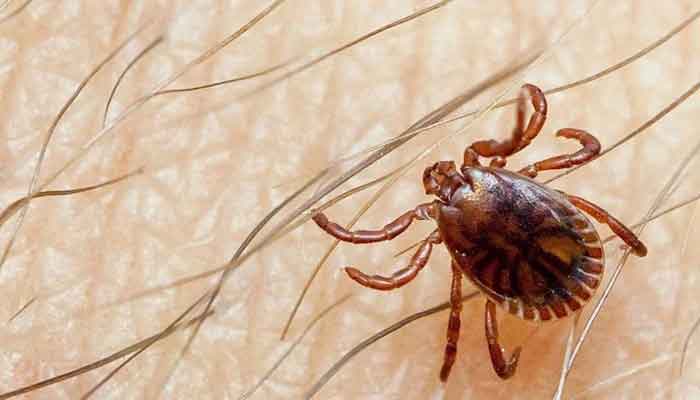Two doctors at Karachi's Jinnah Hospital exhibit suspected symptoms of Congo virus
Both doctors showed symptoms day after providing medical care to patient with Congo virus, says official
June 21, 2025

Two house officers at Jinnah Hospital exhibited suspected symptoms of Crimean Congo Hemorrhagic Fever (CCHF), commonly known as Congo virus, triggering concern following deaths caused by the same virus in the Sindh province, it emerged on Saturday.
Executive Director Jinnah Hospital Dr Shahid Rasool, while informing about the conditions of the patients, said: "A house officer has 90% symptoms of Congo virus. Both doctors showed symptoms the day after providing medical care to a patient with Congo virus last week."
Notably, a patient with Congo virus died on June 19 (Thursday) while undergoing treatment at Sindh Infectious Diseases Hospital.
"Both doctors have complained of high fever and stomach pain," Dr Shahid added.
Due to their conditions, one house officer is isolated at home, while the other is in the medical ICU of Jinnah Hospital.
PCR samples of both doctors have been sent to the lab, and their report on Congo virus will be received on Monday, the executive director said.
He also added that in view of the current situation, a fever desk has been set up in the hospital's emergency department. The hospital does not have the facilities to set up a large-scale isolation unit.
"Instructions from the Health Department regarding the establishment of isolation units will be followed," said Dr Shahid.
Earlier on Thursday, a 26-year-old man from Karachi’s Ibrahim Hyderi area died of Congo virus, marking the second confirmed death from the virus in Sindh this year, according to a provincial health department report.
Congo virus is a tick-borne viral disease with a case fatality rate ranging from 10% to 40%, according to the World Health Organisation.
The virus can be transmitted through tick bites or through contact with the blood or tissues of infected animals, particularly during slaughter. There is currently no vaccine available.











